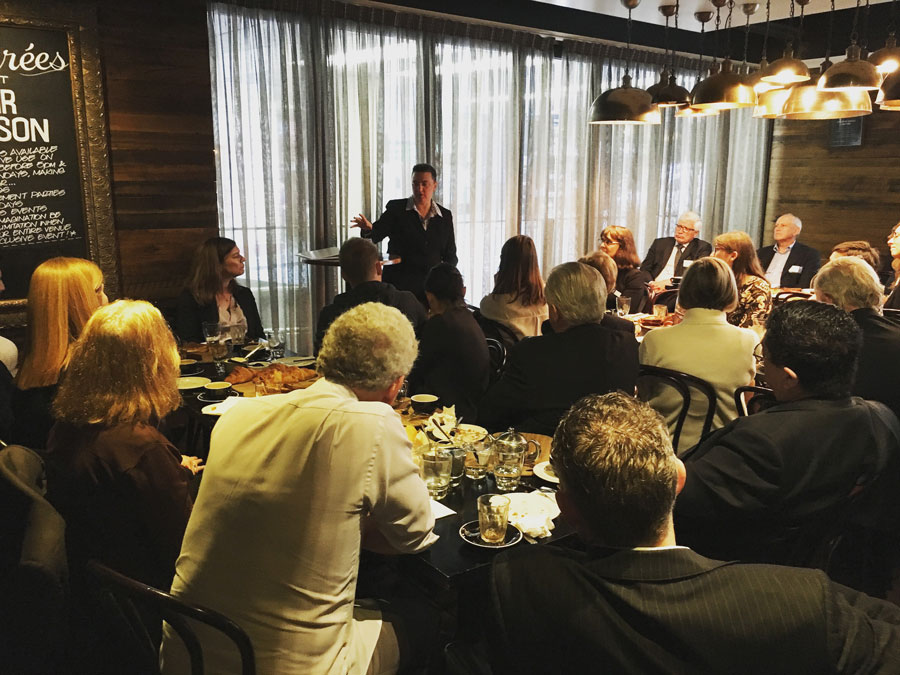Kristen Walker QC: Public pressure can make a difference for refugees
A fair process for refugees and asylum seekers can only be guaranteed through political will, according to MLS alumna Kristen Walker QC.

Kristen Walker QC at the MLS Alumni Seminar
Speaking at an MLS Alumni Seminar on September 6, Walker (LLB(Hons)/BSc 1991, LLM 1996), who is a barrister at the Victorian Bar, shared her experiences of representing asylum seekers before the High Court.
Walker said that while she was optimistic about the legal system’s ability to respond swiftly to breaches of human rights, Parliament could ensure humane treatment by bringing Australia’s refugee and asylum seeker policy in line with its international obligations.
Walker was on the pro bono legal team that successfully issued a High Court challenge to the legality of the federal government’s proposal to transfer up to 800 asylum seekers to Malaysia. The 2011 case (Plaintiff M70 v Minister for Immigration and Citizenship) was one of the fastest in High Court history, resulting in a judgement in the High Court in just 25 days.
But according to Walker, though the case was a victory for their clients it did not produce lasting change.
“We got a great outcome for our clients. In the end, almost all of our clients have been found to be refugees and have been resettled in Australia,” she said. “But we didn’t achieve any permanent resolution in terms of what Australian can do to asylum seekers.”
After a failed attempt to introduce legislative amendments that would nullify the High Court’s decision on the Malaysia transfer arrangement, in 2012 the Labor Party passed legislation that re-established the offshore processing centres on Nauru and Manus Island. The ALP had formally closed these centres in 2008, but shifting political tides prompted their reopening after the “Malaysia Solution” was ruled invalid by the High Court.
Walker said that the M70 case “is a reminder that your victories can be temporary.”
Since 2001 policies intended to deter asylum seekers from arriving in Australia, including offshore processing in the Pacific, has enjoyed largely bipartisan support. Walker said this means a more humane refugee policy is unlikely without political will.
The barrister said she hopes for a “sea-change” in public attitudes towards refugees, as voters can influence refugee policy. While the legal system is an important check-and-balance, Walker said, the Australian public could pressure Parliament to break its bipartisan support for offshore detention.
She also pointed to Wilson Security’s decision to walk away from Australia’s offshore detention regime as an example of effective community pressure.
Wilson Security announced earlier this month that it will stop servicing the centres on Manus Island and Nauru. The company is subcontracted to provide security services on Australia’s offshore facilities by Broadspectrum, which in May also announced that it would not renew its contract with the Department of Immigration and Border Protection when it expires in October next year.
“This is another pressure point making the operation of a camp of this kind unsustainable and is an important and positive development,” she said.
Walker also commended the release of the Nauru Files, a cache of 2,000 leaked reports detailing assaults, sexual abuse and self-harm of children in detention, and highlighted the importance of shedding light on the conditions for people who are held in detention on Manus Island and Nauru.
She said that by raising awareness about the injustice of Australia’s offshore detention policies, this might one day catalyse political change.
“In the end we’re going to need a political solution,” she said.
By Roselina Press